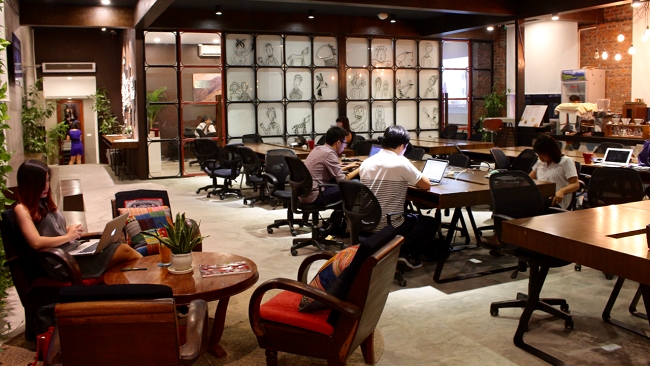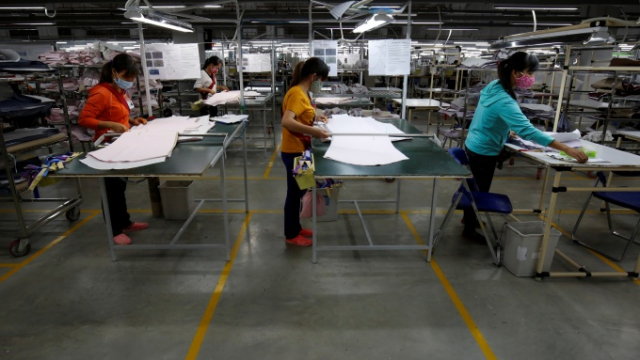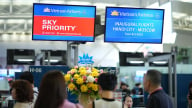Lifestyle
68 per cent of freelancers in Vietnam having experiences of not being paid
68 per cent of freelancers in Vietnam having experiences of not being paid is the highest figure across the four Southeast Asia markets, according to a new study of PayPal, a technology platform and digital payments company just released.

The online survey “Global Freelancer Survey” was conducted by PayPal across 22 markets worldwide in October 2017, of which 1,602 freelancers or freelance considerers were from Singapore, Indonesia, Vietnam and the Philippines.
On average, 58 per cent of the freelancers surveyed in these four Southeast Asian markets have had experiences of not being paid for their work and services. 48.5 per cent of freelancers surveyed in these markets attributed payment issues to a prevailing attitude of not taking freelancers seriously.
Rahul Shinghal, Managing Director of PayPal Southeast Asia and Head of Merchant Support for PayPal APAC said that Southeast Asia is a key market given the region’s growing population and increasingly vibrant entrepreneurial economy. There have been more young people choosing to freelance as being their own boss offers more autonomy and flexibility than a nine-to-five job.
"As they become integral to the global economy, it is critical for them to be accorded the same respect that other professionals receive. We should do more to elevate the standing of freelancers as a community and empower them in their autonomy,” said Rahul Shinghal.
Empowering freelancers with seamless payment processes across the region
According to PayPal’s survey, digital payments platforms play a transformative role for freelancers in Southeast Asia as they are able to help tackle this perception issue through more secure and seamless payment methods for the community.
Through digital payment methods, freelancers across the region now enjoy a wide range of payment methods that offer both security and speed in billing customers and receiving payments.
PayPal and bank transfers were found to be popular payment methods for freelancers in these markets, with 85 per cent accepting PayPal payments and 79 per cent accepting bank transfers.
The study revealed a disparity in preferred payment methods amongst freelancers’ client base as international clients choose PayPal as the preferred payment method, with an average of 76 per cent of payments from international clients made via PayPal. This is compared to an average of 30 per cent of payments from international clients made via bank transfer. Bank transfers are found to be the preferred payment method among domestic clients.
Not only do digital payment platforms facilitate payments across the region, PayPal says that digital payments platforms also ensure that freelancers receive payment with ease and convenience. Nearly half of freelancers surveyed use invoicing software to issue invoices and secure payment from both domestic and international customers.
When choosing preferred payment method, security is the top-most consideration to 48 per cent of freelancers surveyed while ease of withdrawal and a speedy payment process are however only secondary factors.
New generation freelance platforms offer more opportunities
PayPal’s survey shows that job security and business sustainability is a primary concern for many freelancers in the region as an average of more than 40 per cent of freelancers surveyed highlighted irregular income as a key issue. Freelancer platforms are growing in popularity in Southeast Asia as many freelancers are now turning to these platforms to find new assignments and work opportunities.
Vietnam scored highest amongst the four markets in terms of optimism, with 91 per cent of those surveyed saying they are expecting to do more or a lot more freelance work in the future.
More than 80 per cent of freelancers in the four Southeast Asia markets have used a freelancer platform. The study found that freelancers with more international clients are more likely to use a freelancer platform than those with a domestic client focus.
58 per cent of freelancers surveyed in Vietnam said that they found their jobs via social media networks while in other countries, word-of-mouth, online job boards and freelancer platforms are the main means of gaining new assignments.
According to PayPal, new generation freelance platforms can provide many businesses and freelancers with services such as refinement of work scopes, electronic payments options and dispute resolution.
These platforms are helping to set the stage for skilled and highly experienced freelance talents to get high-quality work by providing them with exclusive access to a community of other extremely skilled talents and a roster of top clients.
“Such platform services help freelancers to gain the trust of top clients, and in turn provide them with preferred assignments. These services have also helped to remove the issues of the previous generation of “notice-board marketplaces” and allowed freelancers to focus on putting their talent to work,” said Yiwen Chan, Co-Founder of Content.co, a platform that matches businesses to a curated network of top freelance talents in marketing, editorial and specialist fields.
Despite limitations of existing platforms in completely meeting the needs of freelancers in the various Southeast Asian markets, more than 73 per cent of freelancer platform users said that they will use these platforms more in the future.
“Not only do freelancer platforms connect me with new assignments or clients, these platforms also provide freelancer protection where freelancers can appeal against clients who are causing issues such as payment for example. While more can be done to enhance our job security as a freelancer, I think these platforms are a great start,” shared Talita Putriyanti, an Indonesian freelance translator, and copywriter.
Vietnam’s employers, unions fight again over wage increase
Meliá Hotels adds Kobi Onsen Hue to its Vietnam portfolio
Meliá now operates 20 hotels and resorts throughout the country.
Sofitel Legend Metropole Hanoi welcomes La Tour d’Argent for exclusive dining series
Legendary 400-year-old Parisian restaurant will take over Le Beaulieu for five days in October.
Banyan Tree seaview villas elevate Laguna Lang Co
Ultra-luxe hillside residences bolster accommodation offerings at Central Vietnam property.
Reluctant choices of Mekong Delta’s women as climate change ravages the region
As droughts and saltwater intrusion devastate the Mekong Delta, many women are forced to seek alternative ways to make a living. This new path may offer a glimmer of hope, but it also exposes their extreme vulnerability.
Travel trends in Vietnam this year
In the wake of the pandemic, understanding the future of tourism has become more important than ever. To get business back on track and maintain positive relationships with potential travelers, the tourism sector needs to take a deeper look at emerging trends and integrate new insights into products and services as well as marketing and communication campaigns.
Hoi An’s gaming resort opens for preview
Hoiana will allow selected guests to come and enjoy first-class service provided by big names in the international entertainment and hospitality industry.






















.png)


















